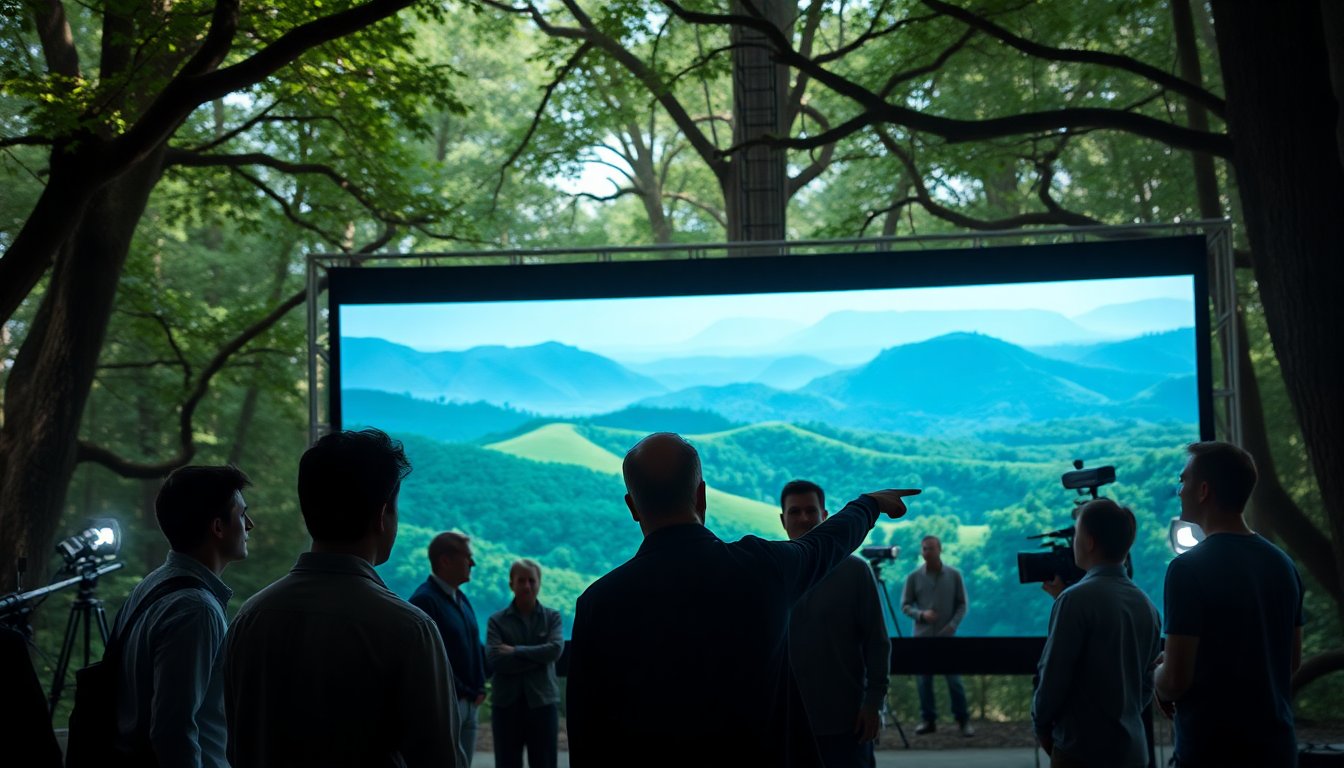Table of Contents
The portrayal of environmental issues in cinema often intersects with the influence of celebrity culture. In Romain Gavras’s latest film, “Sacrifice,” this connection is brought to the forefront as a self-absorbed movie star confronts his role in advocating for a better world. Chris Evans portrays Mike Tyler, a character who embodies the contradictions of celebrity activism, reflecting the broader conversation about how Hollywood shapes public perceptions of critical issues like environmentalism.
Current Landscape of Environmental Cinema
In recent years, films addressing environmental themes have gained considerable traction, paralleling the rise of public awareness surrounding climate change and ecological crises. Directors like Romain Gavras are at the forefront of this movement, using their platforms to critique societal norms. In “Sacrifice,” Gavras presents a satirical take on ecoterrorism, contrasting the lavish lifestyles of the elite with the urgent calls for action from grassroots activists.
The film opens with a striking scene of a violent cult ritual, establishing a narrative that oscillates between dark humor and alarming truths. As Mike Tyler navigates a high-profile environmental summit, the contrast between his superficial concerns and the looming ecological disaster becomes painfully evident. Through this lens, Gavras invites viewers to question the authenticity of celebrity activism in a climate where genuine commitment to environmental causes appears increasingly rare.
Analyzing the Characters and Their Motivations
Mike Tyler, as portrayed by Chris Evans, is not represented as a traditional hero. Instead, he encapsulates the dissonance that many celebrities feel when confronted with the weight of their influence. Upon arriving at a prestigious charity gala hosted by wealthy industrialist Ben Bracken, it becomes clear that his motivations are conflicted. While he tries to engage with the cause, his actions often reveal deeper insecurities and a quest for validation.
Gavras crafts complex and relatable characters, positioning Mike alongside Joan, a radical activist played by Anya Taylor-Joy. Joan and her ecological warriors ultimately disrupt the gala, challenging the self-serving narratives of the elite attendees. This climactic moment serves as a poignant commentary on the disconnect between those in power and the pressing realities of environmental degradation.
Trends and Themes in Ecological Storytelling
The narrative of “Sacrifice” reflects a broader trend in contemporary cinema where environmental themes are prevalent and intertwined with social critique. The film presents a scenario where the impending eruption of a nearby volcano serves as a metaphor for the explosive consequences of inaction. As the characters grapple with the notion of sacrifice, viewers are confronted with the uncomfortable reality of what it means to genuinely commit to a cause.
The film’s satirical approach resonates with audiences, highlighting the absurdity of celebrity involvement in serious issues. Gavras skillfully balances humor with urgency, prompting viewers to consider the effectiveness of celebrity-led initiatives in driving real change. As Mike Tyler questions his purpose amidst the chaos, the film challenges the audience to reflect on the true motivations behind public figures’ environmental advocacy.
Conclusion: The Role of Celebrity in Modern Environmental Discourse
“Sacrifice” ultimately serves as a mirror reflecting the complexities of modern environmental discourse. Through the lens of celebrity culture, the film critiques the superficial nature of activism while emphasizing the need for authentic engagement with pressing global issues. As audiences navigate the intricate relationship between celebrity and ecology, they are left to ponder the true impact of Hollywood on the collective consciousness surrounding environmentalism.


